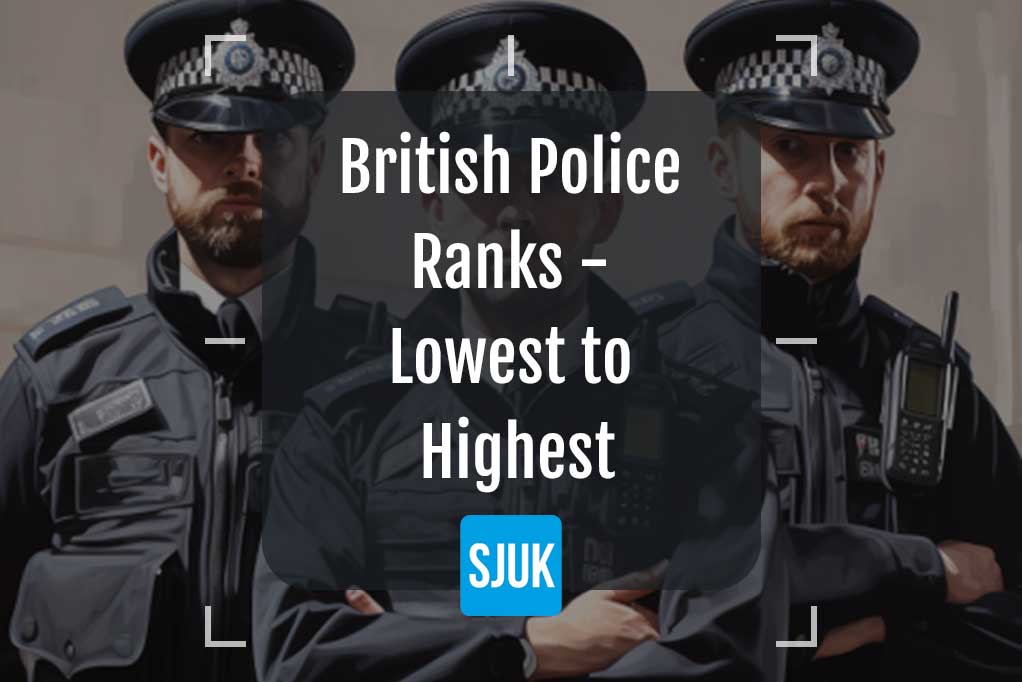
Understanding the hierarchy within the British police force is crucial for appreciating the structure and order that govern law enforcement.
From constables patrolling the streets to chief constables overseeing entire police forces, each rank plays a vital role in maintaining public safety.
Police ranks are different between the different police force sectors in the UK – the British Police, The British Metropolitan Police and The Special Police force.
In this article, we will explore British police ranks from the lowest to the highest across every different police force and delve into the responsibilities and significance of each position.
Table of Contents
Toggle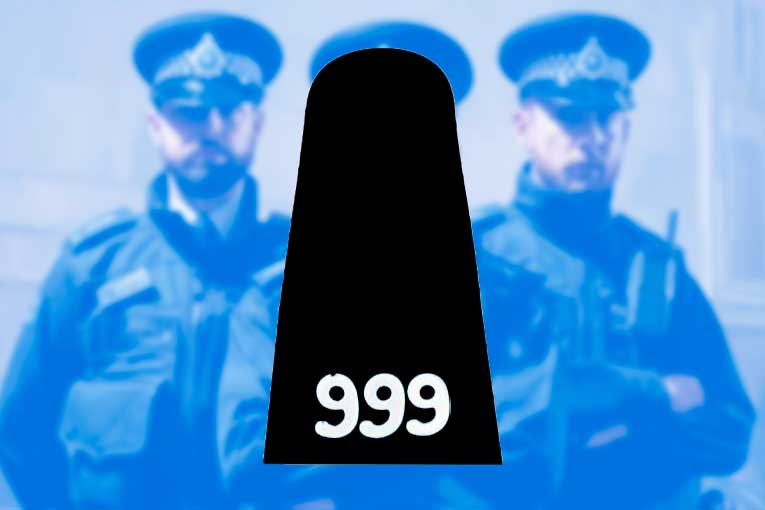
Police Constables are the backbone of law enforcement, undertaking a range of critical duties.
Their responsibilities include patrolling designated areas, responding to emergency calls, investigating crimes, making arrests, and engaging with the community.
Constables gather evidence, prepare reports, and ensure public safety through proactive measures.
They provide assistance to victims, enforce laws, and maintain a visible presence to deter criminal activities.
Constables play a crucial role in fostering positive relationships between the police force and the community, contributing to a safer and more secure environment.
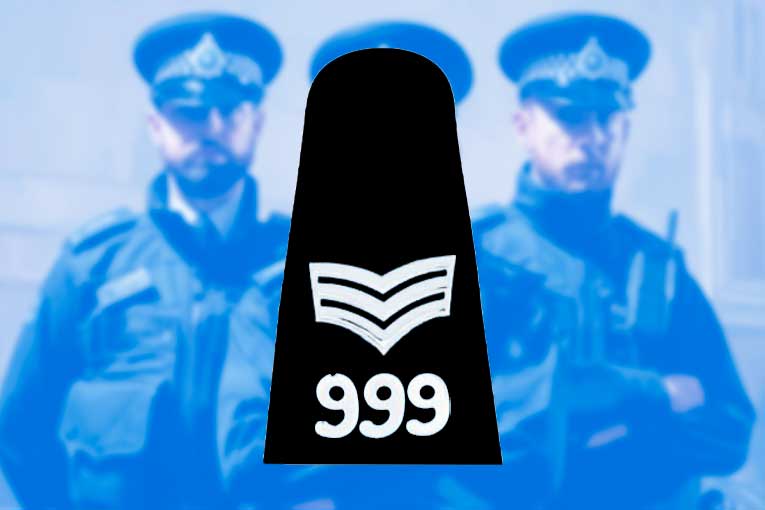
Police Sergeants assume supervisory roles, leading and guiding constables in daily operations.
They coordinate responses to incidents, ensuring efficient teamwork and adherence to protocols.
Sergeants provide support and mentorship to their team, assisting in investigations, arrests, and maintaining public order.
They act as a bridge between constables and higher-ranking officers, facilitating effective communication.
Sergeants play a crucial role in training new officers, conducting performance evaluations, and addressing disciplinary matters when necessary.
Their leadership enhances the overall effectiveness of the police force, contributing to a well-organised and responsive law enforcement system.
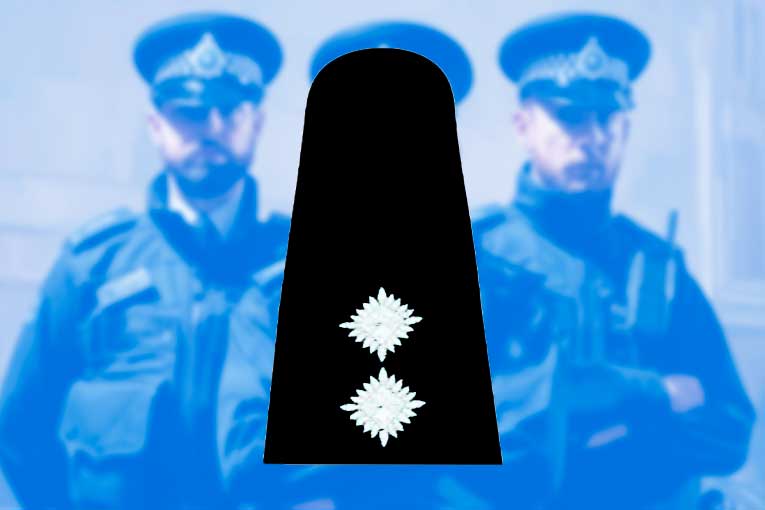
Police Inspectors hold significant supervisory responsibilities within the force.
They oversee multiple teams of constables and sergeants, ensuring effective coordination and operation.
Inspectors play a pivotal role in implementing strategic initiatives, formulating policies, and addressing complex issues.
They actively engage in crime prevention strategies, analysing data to identify trends and allocate resources efficiently.
Inspectors contribute to maintaining high standards of performance, conducting internal audits, and managing resources effectively.
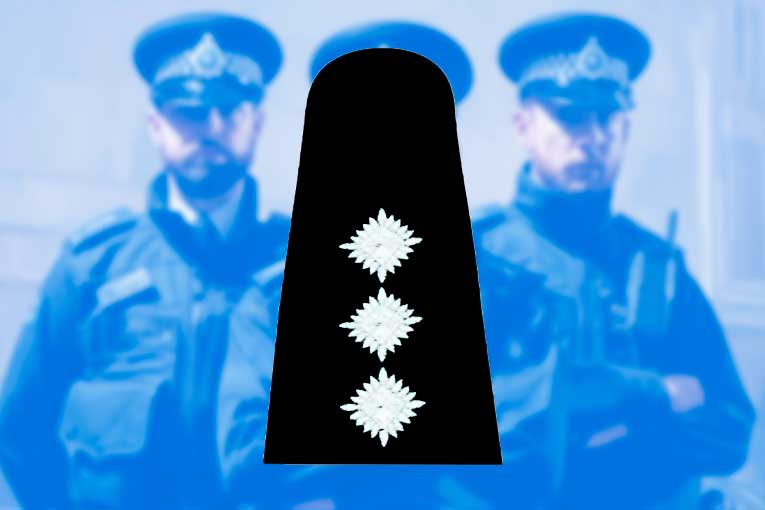
Police Chief Inspectors serve as pivotal leaders in the force, responsible for strategic planning and coordination.
They oversee multiple teams of officers, sergeants, and inspectors, ensuring cohesive and effective policing operations.
Chief Inspectors actively contribute to shaping and implementing force-wide policies, emphasising innovation and efficiency.
They collaborate with senior management to drive organisational goals, address challenges, and maintain high standards of performance.
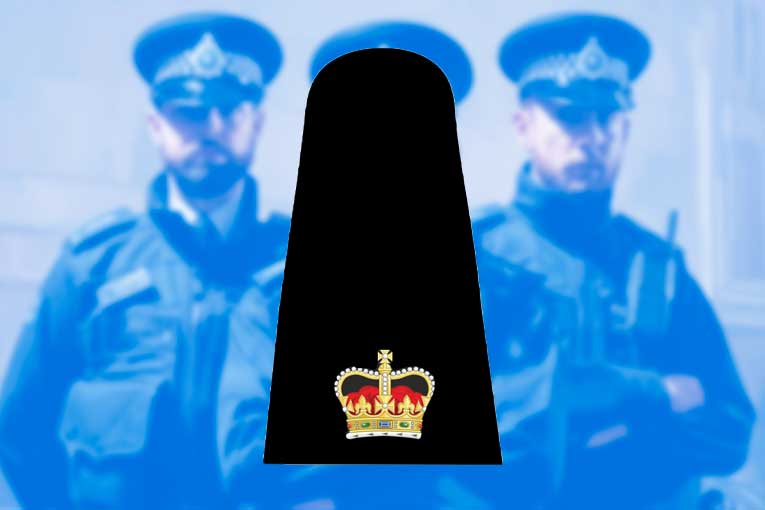
Police Superintendents hold a pivotal role in law enforcement, overseeing multiple divisions or departments within a police force.
They are responsible for strategic planning, ensuring effective implementation of policies, and coordinating operations.
Superintendents actively engage in decision-making processes, working to maintain public safety and uphold the law.
With a broader scope than lower-ranking officers, they contribute to the development of comprehensive policing strategies, emphasising crime reduction and community welfare.
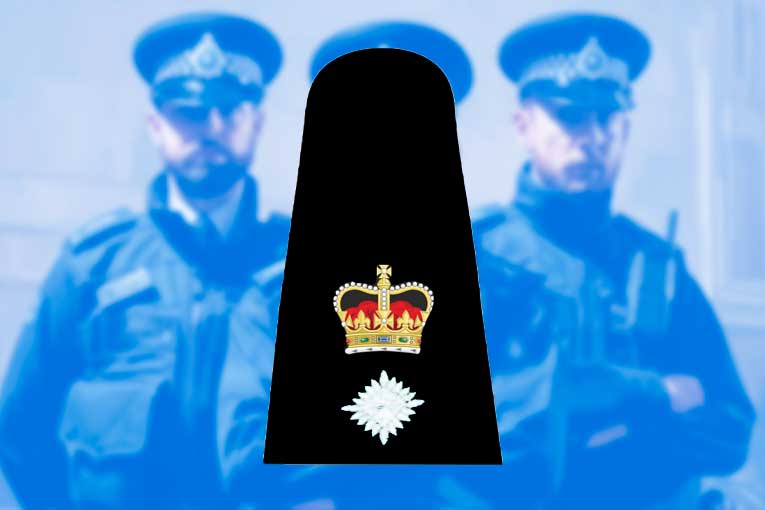
Police Chief Superintendents hold a high-ranking position, engaging in strategic decision-making and often leading specialised units or departments.
Their duties encompass overseeing complex law enforcement operations, coordinating resources, and managing personnel.
Chief Superintendents play a pivotal role in shaping and implementing organisational strategies to enhance public safety.
They work closely with other senior officers to develop effective policing initiatives, ensuring that the force operates efficiently and addresses emerging challenges.
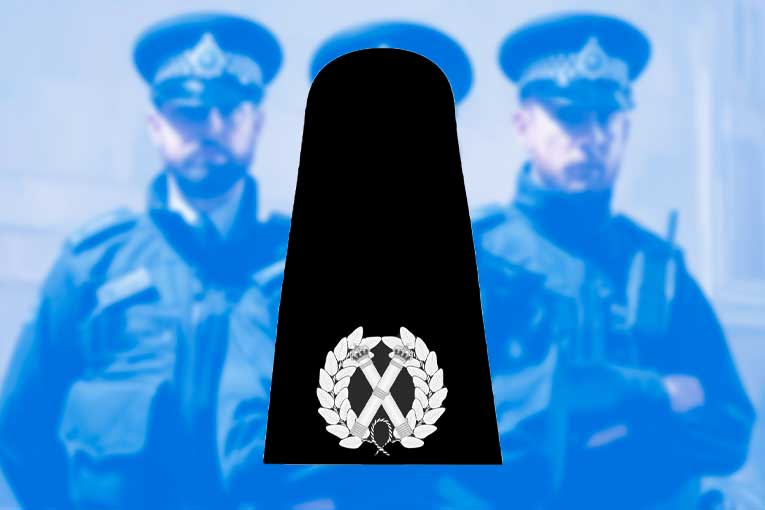
Assistant Chief Constables (ACCs) hold key roles in police forces, assisting the Chief Constable in managing overall operations.
ACCs often take on specific portfolios or responsibilities, contributing to strategic planning and decision-making.
Their duties involve overseeing and coordinating initiatives within their assigned areas, addressing organisational challenges, and ensuring effective policing.
ACCs play a crucial role in developing and implementing policies that enhance public safety.
Working with other senior officers, providing leadership and guidance to achieve the force’s objectives while maintaining community engagement and trust.
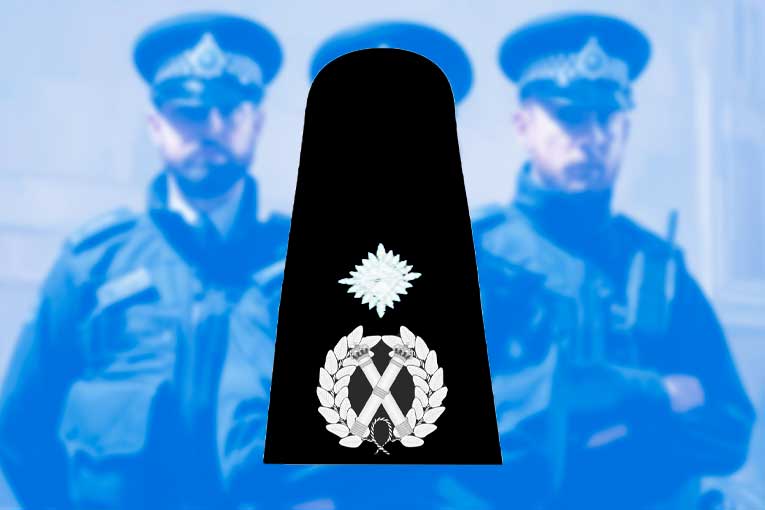
Deputy Chief Constables (DCCs) are second in command within a police force, working closely with the Chief Constable.
DCCs play a vital role in shaping and executing the force’s strategic vision.
Their duties encompass overseeing various departments, managing resources efficiently, and ensuring operational effectiveness.
DCCs actively contribute to decision-making processes, providing leadership and guidance to senior officers.
They represent the force in key engagements, fostering collaboration with external partners.
Additionally, DCCs may assume the Chief Constable’s responsibilities in their absence, underscoring their pivotal position in maintaining the overall functionality and success of the police force.
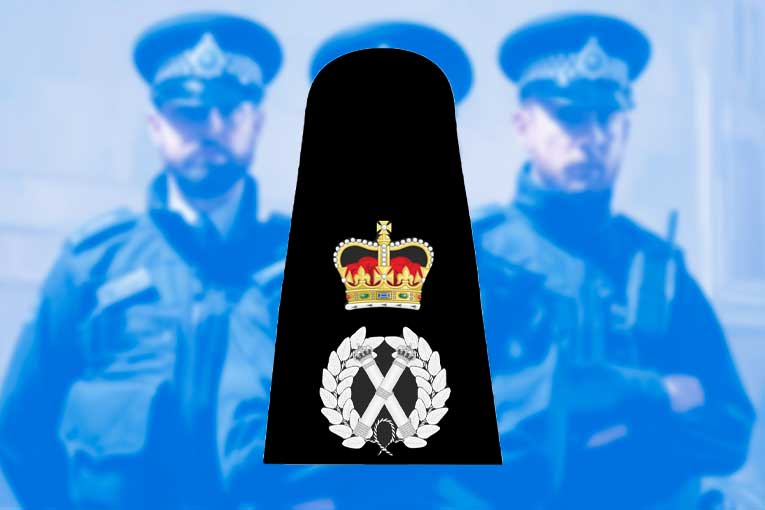
The Chief Constable is the highest-ranking officer in the British police force, entrusted with the overall leadership and direction of the entire organisation.
Their duties encompass strategic planning, policy development, and decision-making on critical matters.
Chief Constables are responsible for shaping the force’s vision, maintaining public trust, and ensuring efficient resource allocation.
They liaise with external stakeholders, represent the force in important forums, and drive initiatives to enhance community safety.
Chief Constables provide guidance to senior officers, set organisational priorities, and navigate the force through complex challenges, playing a pivotal role in shaping the policing landscape.
The British Police ranks of the British Metropolitan police are identical to the regular police ranks for the ranks between Constable and Chief Superintendent.
After promotion from Chief Superintendent, the higher ranks are shown below.
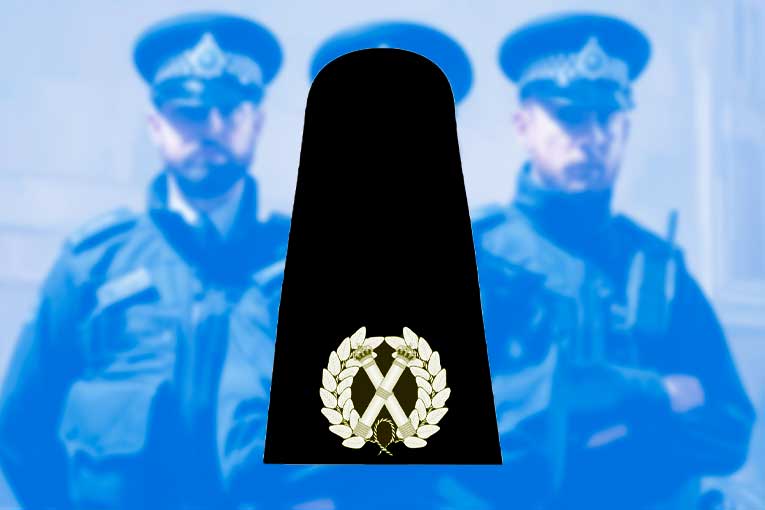
A Metropolitan Police Commander holds a significant leadership role within the police force.
Their duties involve overseeing multiple divisions or units within the Metropolitan Police.
Commanders play a crucial role in strategic decision-making, implementing policies, and managing resources effectively.
They are responsible for coordinating responses to major incidents, ensuring operational excellence, and fostering collaboration among diverse teams.
Commanders often represent the police force in various capacities, engaging with communities, stakeholders, and participating in high-profile events.
Their strategic vision and managerial skills contribute to the overall efficiency and effectiveness of policing in the metropolitan area.
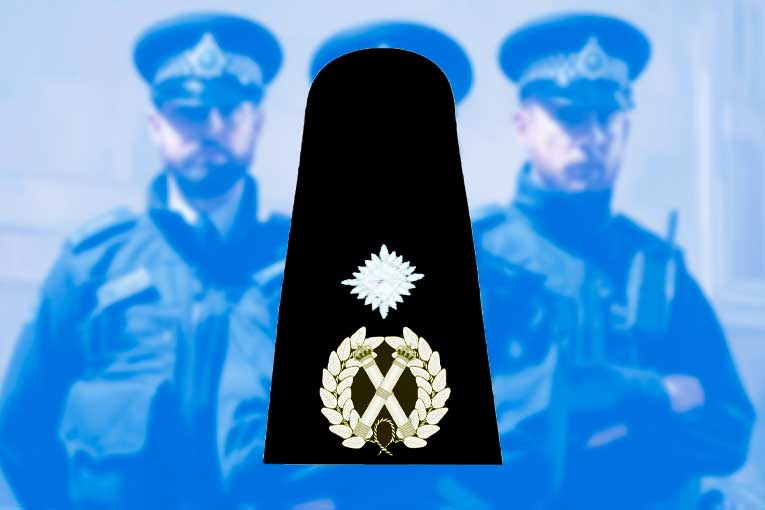
A Deputy Assistant Commissioner in the Metropolitan Police holds a key leadership position, assisting in the overall management of the police force.
Their duties include supporting the Assistant Commissioner in strategic planning, policy implementation, and operational decision-making.
Deputies often have specific portfolios, overseeing critical aspects of policing such as community engagement, crime prevention, or major investigations.
They play a vital role in coordinating responses to complex situations, liaising with external stakeholders, and contributing to the development of innovative policing strategies.
Deputies at this level actively contribute to shaping the direction and success of the Metropolitan Police.
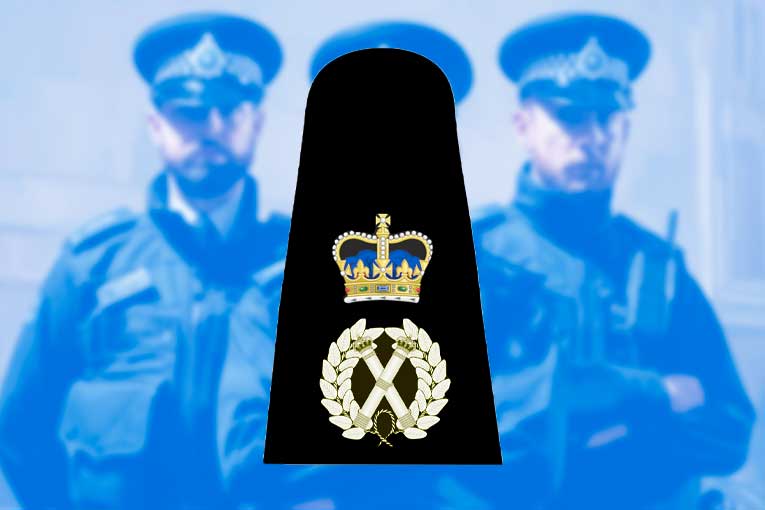
A Metropolitan Police Assistant Commissioner holds a senior leadership role, contributing significantly to the overall management and strategic direction of the force.
Their duties encompass overseeing various departments, managing key operational functions, and implementing policies to enhance the effectiveness of policing.
Assistant Commissioners play a crucial role in decision-making, policy formulation, and resource allocation.
They liaise with external stakeholders, represent the police force at high-profile events, and collaborate with other law enforcement agencies.
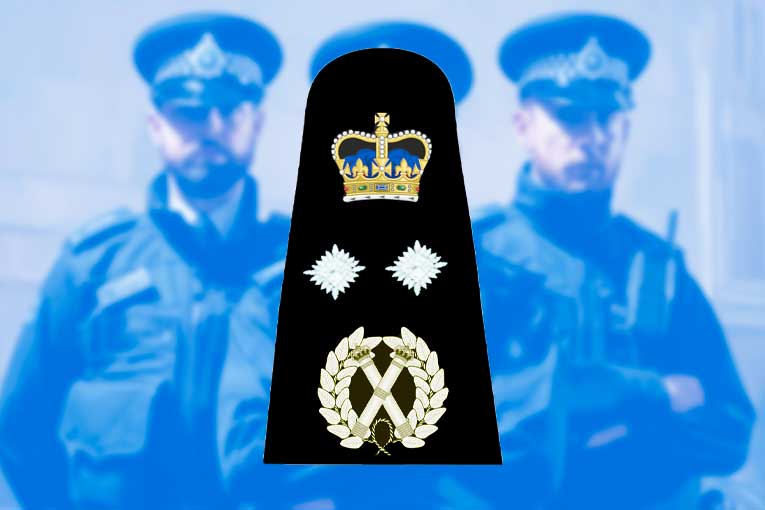
A Metropolitan Police Deputy Commissioner serves as the second-in-command, assisting the Commissioner in overseeing the entire police force.
Their duties encompass strategic planning, decision-making, and addressing complex issues affecting the Metropolitan Police.
Deputy Commissioners often manage specific portfolios or initiatives critical to the force’s overall functioning.
They liaise with external partners, represent the police force in various capacities, and contribute to the development of policies that align with the organisation’s goals.
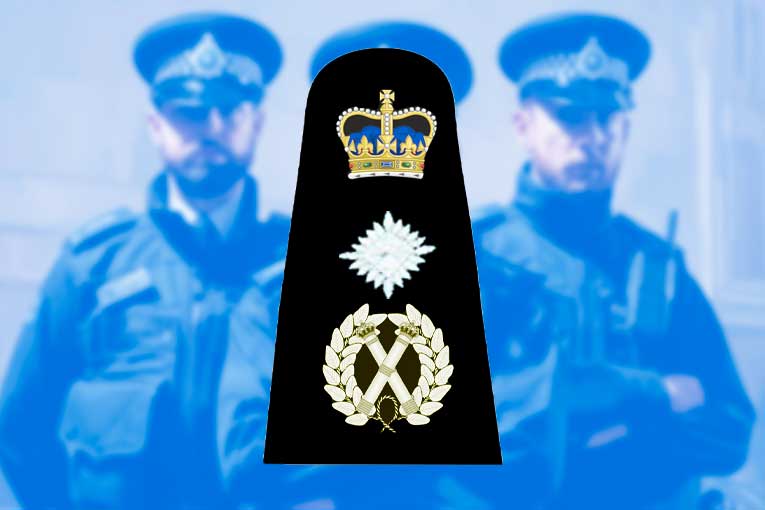
A Metropolitan Police Commissioner is the highest-ranking officer, responsible for the overall leadership and direction of the Metropolitan Police.
Their duties encompass strategic planning, decision-making, and policy implementation.
Commissioners provide vision and guidance to the force, ensuring effective law enforcement and community safety.
They represent the Metropolitan Police in various capacities, engage with external stakeholders, and address critical issues.
Commissioners play a crucial role in shaping the force’s culture, values, and priorities, fostering a cohesive and efficient organisation that serves the public interest.
The British Special Police, also known as Special Constables, are volunteer officers who support regular police forces.
They undergo training and possess the same powers as full-time officers but serve part-time. Special Constables contribute to community safety, assisting in various roles, such as patrolling, attending incidents, and engaging with the public.
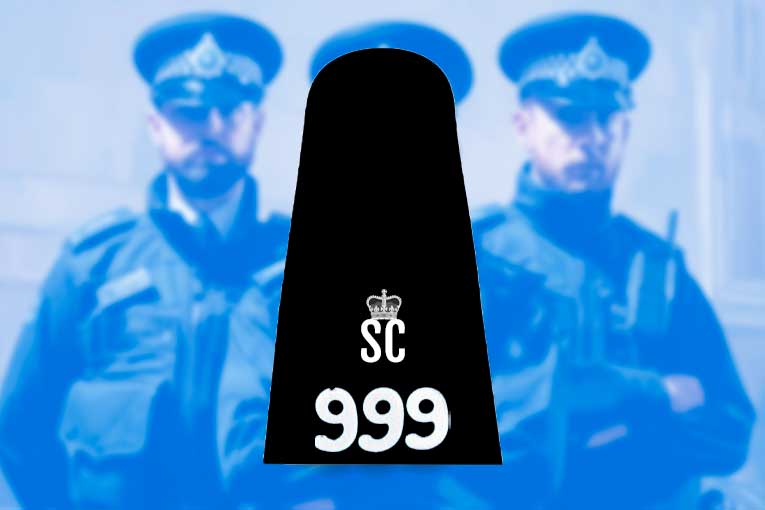
Special Police Constables, often referred to as Specials, are volunteer officers within the British Special Police.
They undergo training and work alongside regular police, contributing to community safety.
Specials perform duties such as patrolling neighbourhoods, responding to incidents, and engaging with the public.
Their role extends to supporting regular officers during events and emergencies.
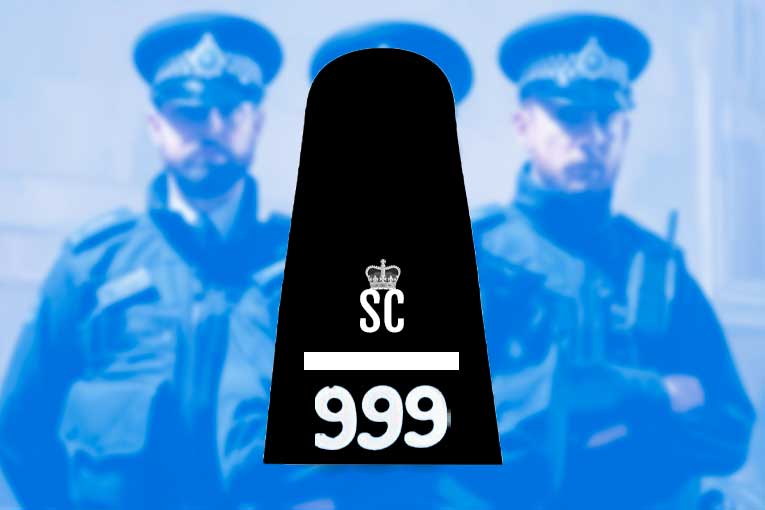
Special Police Section Officers within the British Special Police hold leadership roles among Special Constables.
They take on additional responsibilities, overseeing specific sections or units within the volunteer force.
Their duties may include coordinating activities, providing guidance to Special Constables, and ensuring the effective functioning of their assigned section.
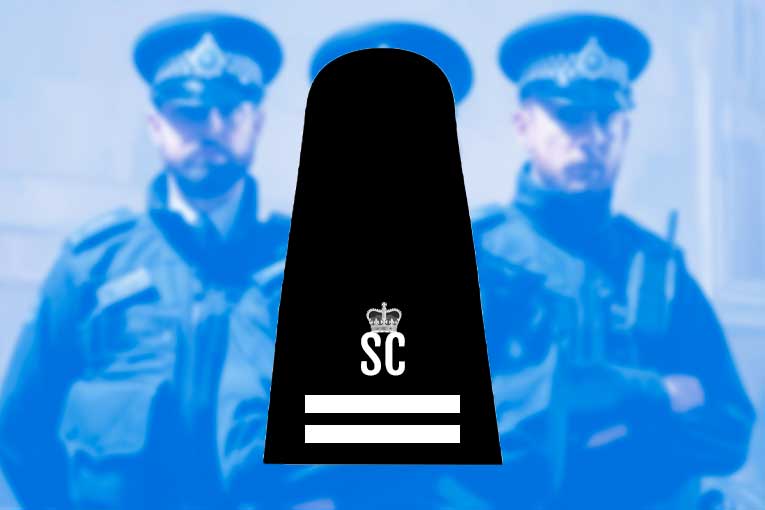
Special Police Special Area Officers play a crucial role within the British Special Police, taking on supervisory responsibilities beyond regular Special Constable duties.
They are tasked with overseeing specific geographic areas, ensuring effective policing and community engagement.
Special Area Officers collaborate with local communities, address concerns, and provide guidance to Special Constables under their purview.
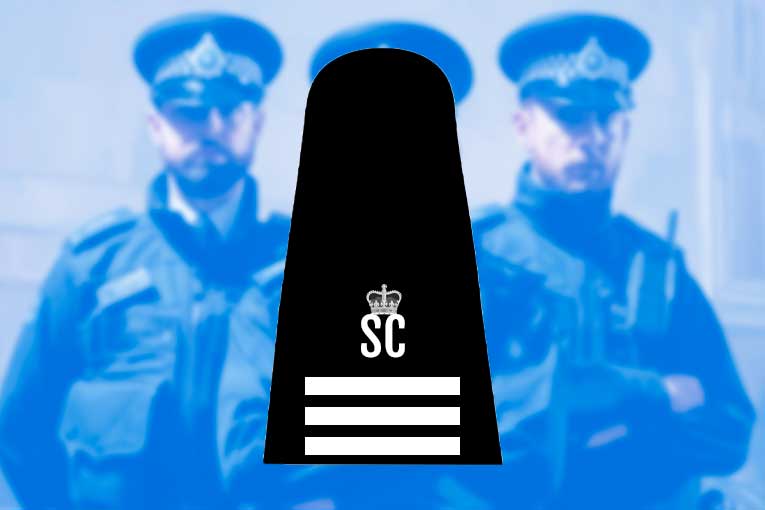
Special Police Chief Area Officers hold significant leadership roles within the Special Police, responsible for overseeing and coordinating the activities of multiple Special Area Officers.
They play a pivotal role in strategic planning, ensuring the efficient deployment of resources and effective policing within their designated regions.
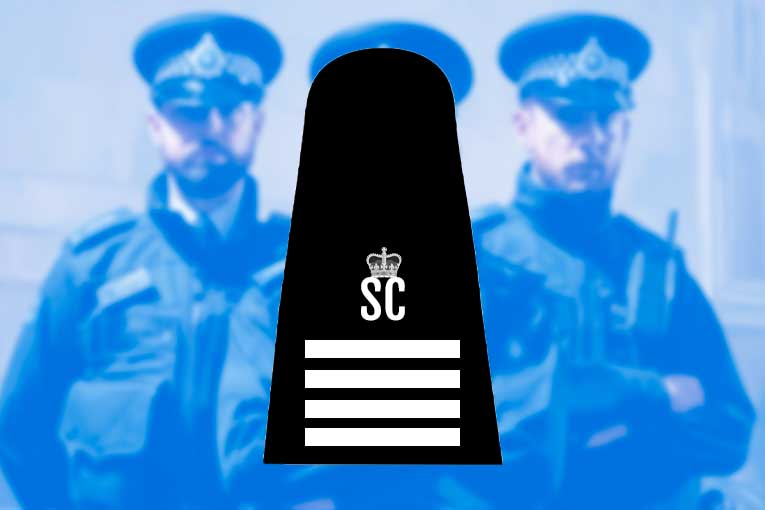
Special Police Chief Officers are senior leaders within the Special Police, tasked with high-level responsibilities.
They oversee and direct the activities of the entire Special Police force, ensuring efficient operations and adherence to strategic goals.
Chief Officers play a key role in policy development, resource allocation, and decision-making.
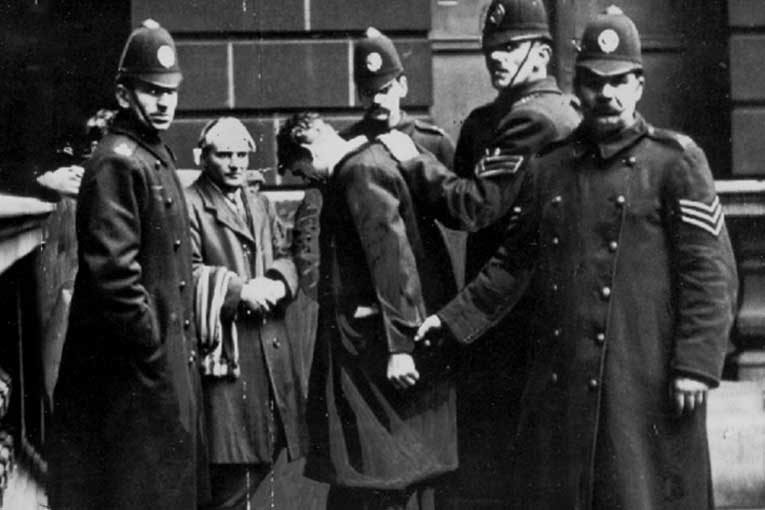
The history of British police ranks is a journey that reflects the evolving nature of law enforcement.
The concept of a structured police force emerged in the early 19th century with the establishment of the Metropolitan Police Service in 1829, led by Sir Robert Peel.
The initial ranks were simple, featuring constables, sergeants, and inspectors.
Over the years, as policing responsibilities expanded, the ranks diversified to accommodate the hierarchical needs of a growing and complex police force.
The introduction of Chief Constables, Superintendents, and Chief Superintendents followed, representing the emergence of senior leadership roles.
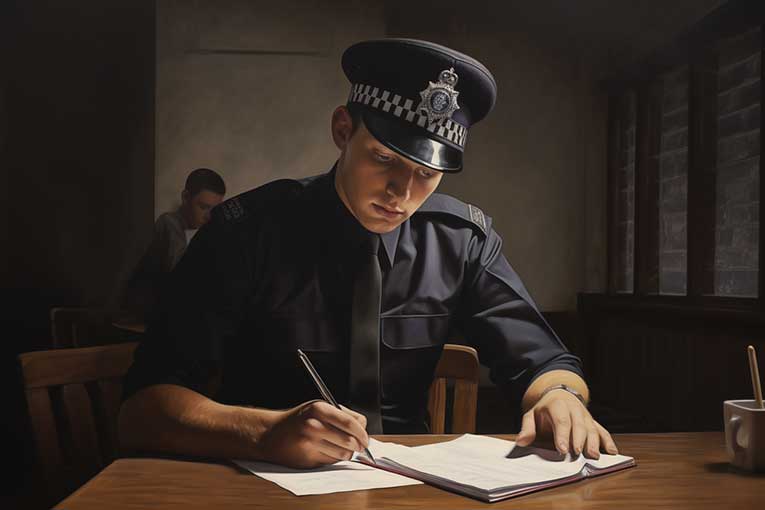
Promotion within the British police force is typically merit-based, with officers advancing through the ranks based on their skills, experience, and demonstrated leadership capabilities.
Successful completion of assessments, examinations, and continuous professional development often pave the way for promotions.
The hierarchy of British police ranks provides insight into the organisational structure that underpins law enforcement.
From constables on the beat to chief constables shaping strategic direction, each rank plays a crucial role in ensuring the safety and well-being of the communities they serve.
This overview offers a comprehensive understanding of the diverse responsibilities and leadership positions of British police ranks.